Equi-note 04 How will the Riding Revolution help my horse?
Equi-note #4 How will the Riding Revolution help your horse? Equi-note #4 How will the Riding Revolution help your horse? Why is an equestrian revolution necessary? Well, to start with, if harmony always existed between horse and rider, it wouldn’t be necessary! And if every rider’s goals were being achieved, new learning wouldn’t even […]
Equi-note 18 Hyperflexion-rollkur-the horse is more conflictive because faster airflow damages its throat
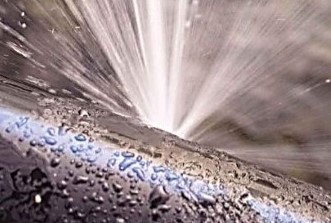
Equi-note 18 Hyperflexion-rollkur-the horse is more conflictive because faster airflow damages its throat Source: www.southernwater.co.uk; Equi-note 18 Hyperflexion-rollkur-the horse is more conflictive because faster airflow damages its throat There are several problems arising from the higher speed of airflow. They include turbulence of the airflow and damage to the soft tissues of the palate. […]
Equi-note 17 Hyperflexion-rollkur-the horse is more conflictive because its airflow is blocked
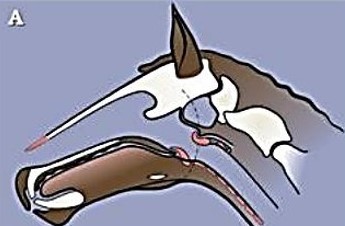
Equi-note 17 Hyperflexion-rollkur-the horse is more conflictive because its airflow is blocked To understand the effects of rollkur it is necessary to view the effect on the horse’s windpipe. Head and neck in moderate extension (jowl angle 114°) Head and neck in moderate flexion (jowl angle 69°) Notes: 1. Ascending arrows indicate direction of […]
Equi-note 16 Hyperflexion-rollkur increases the horse’s conflict behaviour
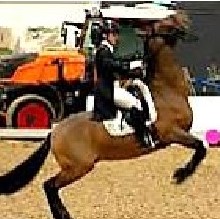
Equi-note 16 Hyperflexion-rollkur increases the horse’s conflict behaviour Source: photos #1 & #3: dressagehub; wp: photo #2: @SymbolsOfSaturn129; nkc Equi-note 16 Hyperflexion-rollkur increases the horse’s conflict behaviour How does this come about? To begin with forcing the horse’s head and neck into a contrived position causes stress. The horse reacts by showing its discomfort in […]
Equi-note 15 Hyperflexion-rollkur causes extensive physical and mental damage
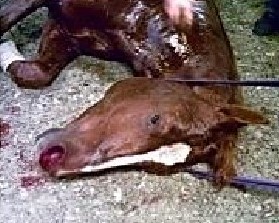
Equi-note 15 Hyperflexion-rollkur causes extensive physical and mental damage Source: 1st photo: pi; 2nd & 3rd photos: nkc; Equi-note 15 Hyperflexion-rollkur-causes extensive physical and mental damage The previous posts have shown that hyperflexion-rollkur has a very long history. Even though its damaging welfare aspects were not recognized as such. Any health issues which […]
Equi-note 14 Hyperflexion-rollkur used continuously for centuries
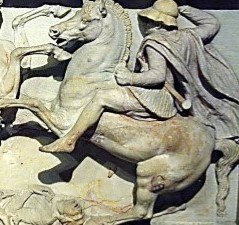
Equi-note 14 Hyperflexion-rollkur-used continuously for centuries Thessalian cavalryman from 336-323BCE Source: wikimedia.org. cc from macedonian army on Alexander sarcophagus Equi-note 14 Hyperflexion-rollkur-used continuously for centuries As the previous post showed, rollkur has been an integral part of horse training for several thousand years. It has been particularly a feature of training and riding horses […]
Equi-note 13 Hyperflexion-rollkur-how did rollkur start?
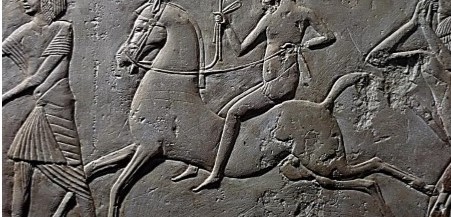
Equi-note 13 Hyperflexion-rollkur-how did rollkur start? Horemheb tomb Saqqara Egypt 1332-1323 BCE Source: metmuseum.org. pd Greek horseman 4th-3rd century BCE Source: metmuseum.org. pd Persian Cavalry Achaemenian Period 515 BCE Source: www.ancientart.as.ua.edu Parthenon frieze 442-438 BCE Source: British Museum.org. cc Xenophon cavalry training with draw reins Source: comitatus.net. wp Equi-note 13 […]
Equi-note 12 Hyperflexion-rollkur-how does it create disharmony?
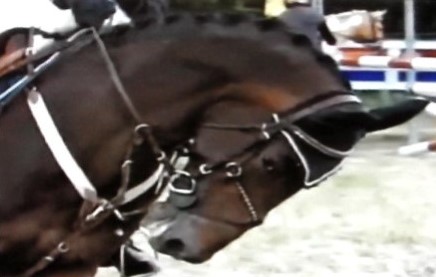
Equi-note 12 Hyperflexion-rollkur-how does it create disharmony? Source: eponaTV; wp Equi-note 12 Hyperflexion-rollkur-how does it create disharmony? The most immediate and most obvious effect is choking. The horse is being forced to work and this demands a rapidly expanding supply of oxygen. However, given its constricted its head and neck position the size […]
Equi-note 11 Hyperflexion-rollkur is a mismatch which creates disharmony
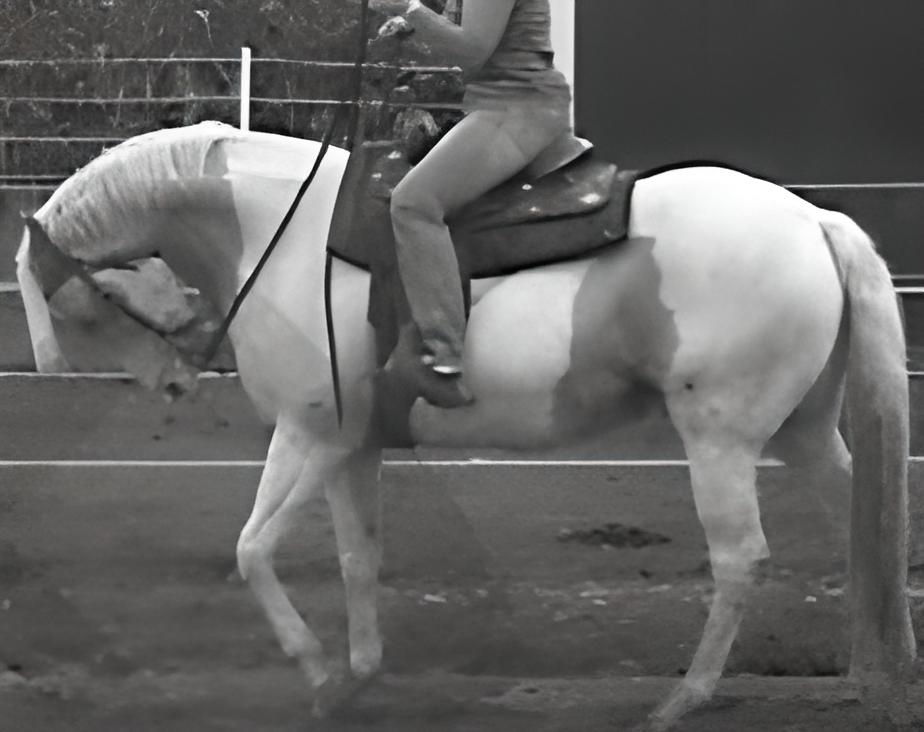
Equi-note 11 Hyperflexion-rollkur is a mismatch which creates disharmony Source: applied animal welfare science.com; cc Equi-note 11 Hyperflexion-rollkur is a mismatch which creates disharmony As mentioned in the previous post, personalities play a big part in the riding experience. And also in the quality of the interaction with horses. There may be many […]
Equi-note 10 Ignoring the Matching Principle aggravates disharmony
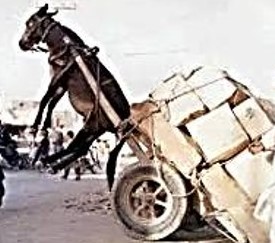
Equi-note 10 Ignoring the Matching Principle Aggravates Disharmony Source: Bilalham senior pakwheeler 2004 nkc Equi-note 10 Ignoring the Matching Principle aggravates disharmony What does this mean? We can understand disharmony in several ways. In the case of a horse and rider it is very different from the working conditions shown above, where the […]